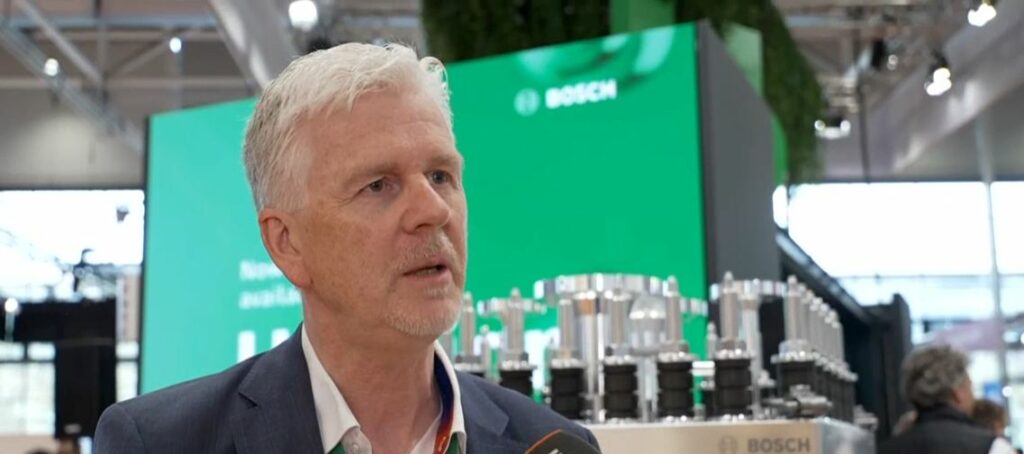At this year’s Hannover Messe, Bosch Senior Vice President Matthias Ziebell delivered an impassioned briefing on the company’s pioneering work in hydrogen technology—a cornerstone of Bosch’s strategic initiatives for a greener, decarbonized future.
Commitment to Hydrogen
Hydrogen has emerged as a pivotal technology for Bosch, as emphasized by Ziebell during his presentation. “We invest continuously in this technology,” he stated, highlighting Bosch’s unwavering conviction in the potential of hydrogen solutions on a global scale. The company’s latest showcase at the fair is a newly developed electrolysis stack designed to generate green hydrogen. This innovation underscores Bosch’s commitment to producing clean energy essential for powering a sustainable economy.
Innovations Driving the Hydrogen Economy
Bosch’s Hannover Messe stand was a testament to the company’s comprehensive approach to hydrogen technology. Ziebell elaborated on several key components that make up Bosch’s hydrogen ecosystem:
- Electrolysis Stack: The exhibit’s centerpiece, the new stack is engineered to produce green hydrogen by leveraging advanced water purification systems.
- Supporting Technologies: In addition to the stack, Bosch displayed a range of innovative solutions including a pump for fueling vehicles with both liquid and gaseous hydrogen, as well as a compressor to support the infrastructure required for hydrogen mobility.
- Mobility Innovations: Bosch is actively contributing to hydrogen-powered mobility. Ziebell noted that the company supplies advanced injection systems that allow conventional internal combustion engines to operate on hydrogen. Furthermore, more than 2,000 hydrogen fuel cell trucks are already in service—a clear indicator that Bosch is not just theorizing but actively deploying hydrogen solutions.
Collaboration with Policy Makers
Acknowledging the critical role of governmental support, Ziebell pointed out that Bosch works closely with local, European, and international authorities to foster an environment conducive to hydrogen innovation. “We need the right framework conditions—both regulatory and in terms of innovation,” he remarked. While some businesses have criticized past governmental policies for not adequately supporting hydrogen investments, Ziebell expressed optimism about the ongoing negotiations under the new administration. Bosch remains committed to partnering with policymakers to ensure that Europe, Germany, and international markets remain competitive in the burgeoning hydrogen economy.
Looking Ahead
With hundreds of dedicated engineers and technicians already driving projects worldwide, Bosch is ready to scale up its hydrogen initiatives. “We are ready,” declared Ziebell, affirming that many production lines are set and waiting to meet the increasing demand for green hydrogen. This robust investment in technology and talent demonstrates Bosch’s determination to lead the charge in decarbonizing industries and transportation through innovative hydrogen solutions.
Bosch’s comprehensive approach—from developing cutting-edge electrolysis stacks to enabling hydrogen mobility and fostering strong government partnerships—underscores its position as a key player in the global transition to cleaner energy. As the debate over energy policies continues, Bosch’s strategic investments and collaborative efforts are paving the way for a sustainable, hydrogen-powered future.
